The workplace is in a constant state of change. Employees are expected to adapt quickly, mastering new tools, technologies, and workflows as industries shift to meet the demands of a digital-first world. However, this change comes with its challenges.
According to recent Gartner research, 62% of HR leaders agree that uncertainty around future skills is one of their top concerns—a stark reminder of how critical it is to upskill their workforce.
For L&D teams, the question isn’t just about identifying these skill gaps. It’s about equipping employees with the resources to close them effectively. That’s where online course providers come in.
These platforms offer a dynamic, accessible way to deliver expert knowledge, industry certifications, and actionable training to employees wherever they are.
But not all providers are created equal. With so many options on the market, ranging from niche platforms to comprehensive solutions, choosing the right fit for your organization can feel overwhelming, The right provider can empower your teams and drive measurable results; the wrong one could waste valuable time and resources.
In this article, we’ll explore what makes online course providers a game-changer for workforce development, key features to look for, and how to evaluate platforms that align with your business needs.
What Is an Online Course Provider?
Think of online course providers as digital learning hubs. They package expert knowledge into structured, self-paced courses that fit modern work schedules. Unlike traditional corporate learning management systems or in-person workshops, these platforms let employees learn anywhere, at any time, through web-based training.
Most providers fall into one of two categories:
MOOC (Massive Open Online Course): Platforms like Coursera and edX that partner with universities and industry experts
Specialized training platforms: Websites like Pluralsight or HubSpot Academy that focus on specific professional skills
These platforms differ from internal learning management systems (LMS) in a meaningful way. While many L&D tools help you deliver custom company training modules, course providers offer ready-made content from recognized experts. This includes:
- Industry professionals sharing real-world expertise
- University professors teaching advanced concepts
- Training organizations offering structured skill development
- Subject matter experts providing specialized knowledge
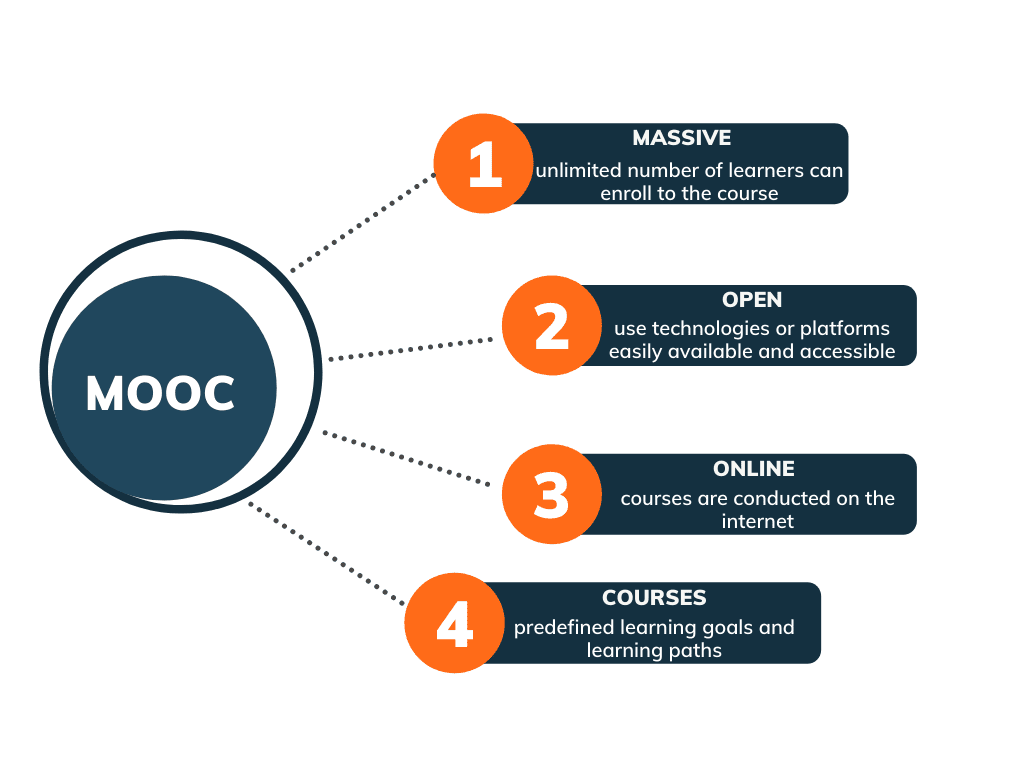
Most Popular Types of Online Courses
Professional development needs vary across teams and industries. Here are the most in-demand course categories that shape today’s workforce:
1. Artificial intelligence (AI) and machine learning
AI isn’t just for tech companies anymore. These courses help teams understand and implement AI solutions across business functions. Popular topics include machine learning basics, natural language processing, and practical AI applications in marketing, customer service, and operations.
2. Data science and analytics
Data drives modern business decisions. These courses teach everything from basic data literacy to advanced analytics. Teams learn how to collect data, create meaningful insights, and use popular tools like Python, R, and SQL. Marketing teams use these skills for customer analysis, while operations teams apply them to process improvement.
3. Leadership and management
Good leaders need ongoing development. These courses cover essential skills like team building, conflict resolution, and strategic thinking. They help new managers transition into leadership roles and experienced leaders adapt to changing workplace dynamics.
4. Digital marketing and SEO
The digital landscape changes constantly. Marketing teams use these courses to stay current with SEO practices, content strategy, and lead generation techniques. They learn practical skills for improving search rankings, creating effective content, and measuring campaign success.
5. Project management
Modern projects need structured management. These courses teach both traditional and agile methodologies. Teams learn how to plan projects, manage resources, and deliver results on time. Many courses align with professional certifications like PMP or Scrum Master.
6. Software development
Tech skills evolve rapidly. Development courses cover programming languages, cloud platforms, and software architecture. Teams learn current technologies while building practical skills through hands-on projects.
7. UX Design and product development
User experience shapes product success. These courses teach design thinking, user research, and interface design. Product teams learn to create better user experiences while developers understand how their work impacts customers.
8. Business analytics and finance
Financial literacy matters across departments. These courses cover business metrics, financial planning, and data-driven decision-making. Teams learn to read financial statements, understand business impacts, and make better resource decisions.
9. Marketing
Today’s marketing landscape blends art and science, and these courses help teams master both. Marketing professionals learn current SEO techniques that actually work, not just theory. Content teams discover how to create material that ranks well and converts visitors. Lead generation courses show practical ways to turn website traffic into qualified prospects. The best programs include real campaign examples and metrics for measuring success.
10. Personal branding
Professional reputation matters more than ever. Personal branding courses help employees stand out in their fields as they learn to build an authentic online presence, create engaging professional content, and network effectively. These skills help sales teams build credibility with clients, leaders establish industry authority, and specialists become recognized experts. Good courses focus on sustainable practices rather than quick fixes.
11 Best Online Course Providers for Employee Development in 2025
Finding the right learning platform shapes how well your team develops new skills. Here’s a look at the top providers, according to G2.
1. Coursera for Business
- G2 Rating: 4.5 out of 5 stars
- Best For: Professionals and enterprise teams seeking academic-quality training
- Price: Starting at $399 per user/year
Coursera partners with leading universities to deliver high-quality courses and certifications. The platform excels at flexible learning options but doesn’t offer live chat support. It’s perfect for teams that need recognized credentials and appreciate self-paced learning.

2. HubSpot Academy
- G2 Rating: 4.8 out of 5 stars
- Best For: Marketing teams and small businesses
- Price: Free
HubSpot Academy stands out for inbound marketing education. Its user-friendly platform works exceptionally well for small business teams. The free pricing and focused content make it ideal for marketing teams building foundational skills.
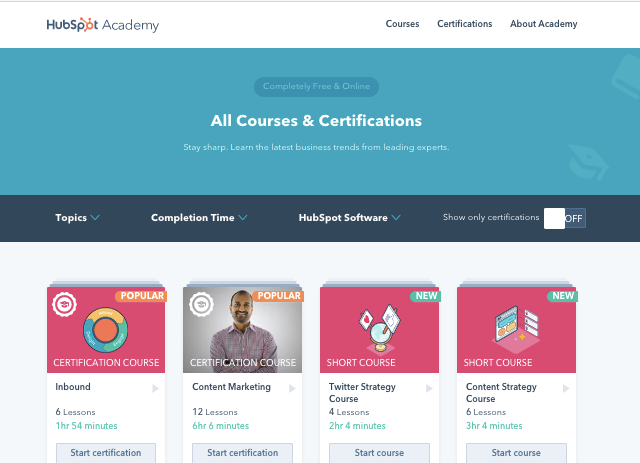
3. Corporate Finance Institute
- G2 Rating: 4.8 out of 5 stars
- Price: Starting at $399.00 per user/year
- Best For: Finance teams and professionals
CFI delivers practical finance training with high-quality courses. While it lacks some interactive features, the content hits the mark for finance professionals needing real-world skills. It’s ideal for teams focused on financial analysis and modeling.

4. KodeKloud
- G2 Rating: 4.8 out of 5 stars
- Price: Starting at $228.00 per user/year
- Best For: DevOps Engineers
KodeKloud specializes in hands-on DevOps training. Their real-world simulations give engineers practical experience, though some users report occasional lab connectivity issues. Perfect for teams building practical cloud and automation skills.
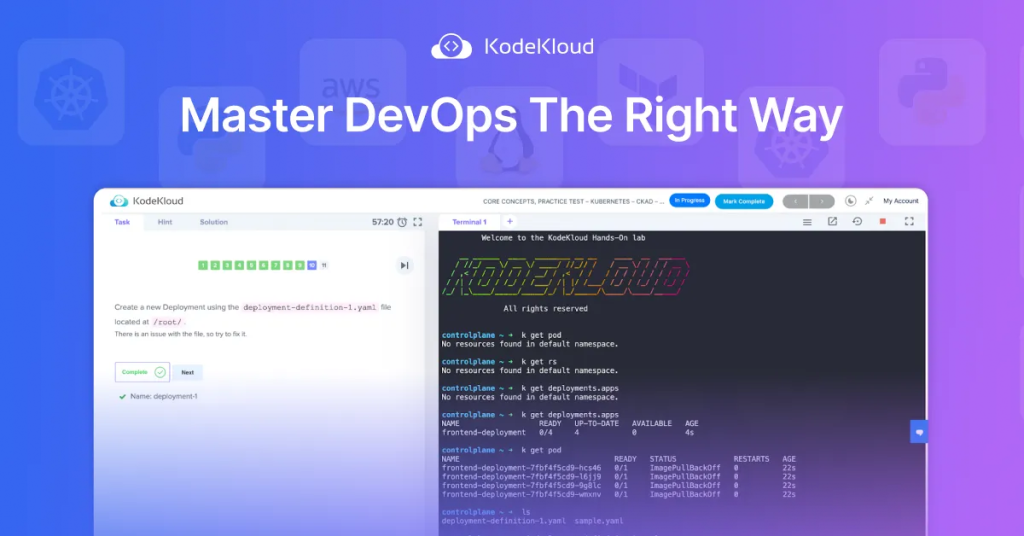
5. Uxcel
- G2 Rating: 4.8 out of 5 stars
- Price: Free
- Best For: UX Design teams
Uxcel focuses on personalized design learning with strong team skill tracking. While analytics features are limited, the platform works well for design teams needing structured skill development. Great for organizations building or improving their UX capabilities.
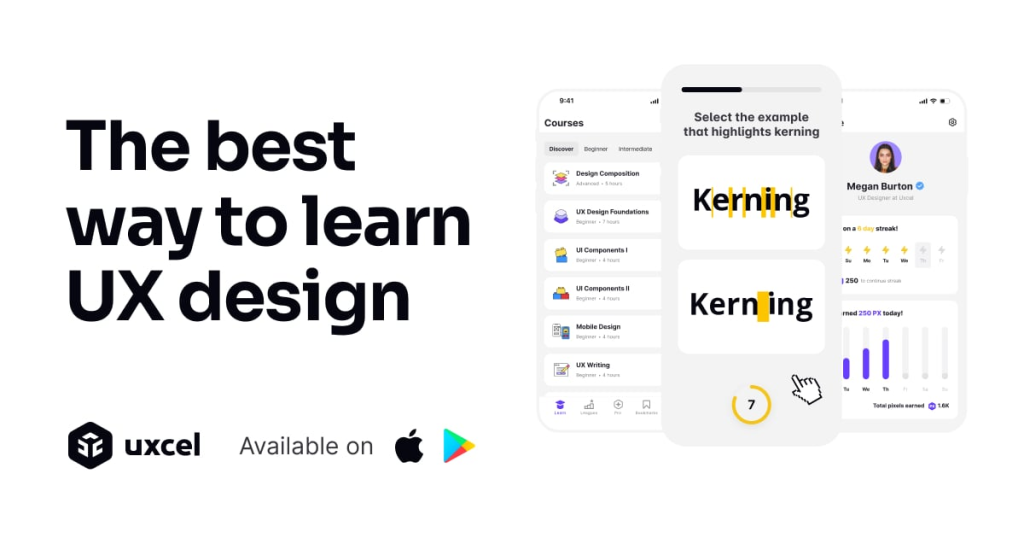
6. Udacity for Enterprise
- G2 Rating: 4.5 out of 5 stars
- Price: Free
- Best For: Tech professionals
Udacity excels at digital skills training and certifications. While advanced learners might find some of the free content light, the platform works well for teams needing practical tech skills. It’s best suited for organizations focusing on digital transformation.
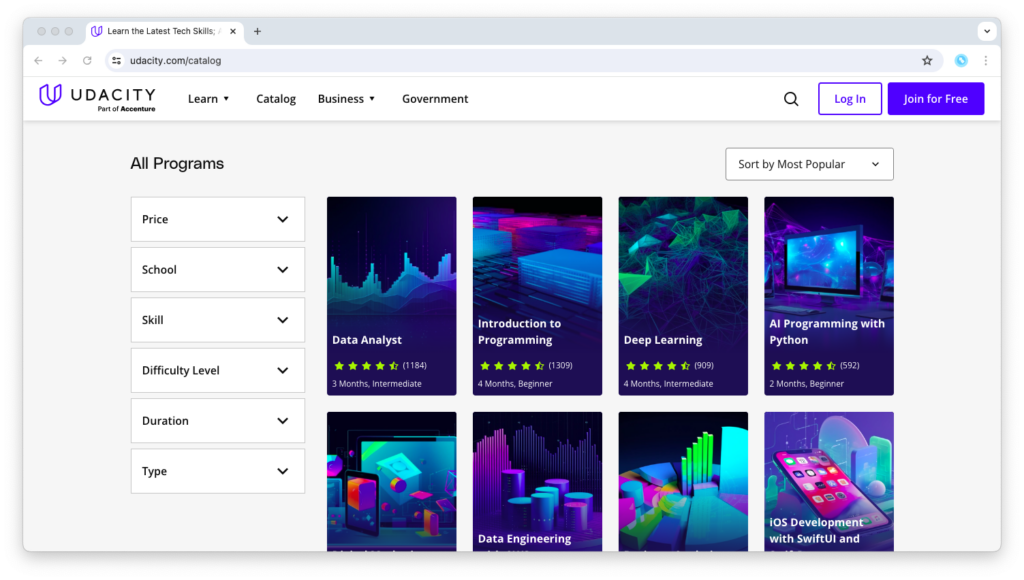
7. Udemy Business
- G2 Rating: 4.5 out of 5 stars
- Price: Starting at $30 per month/user
- Best For: Enterprise teams
Udemy Business offers fresh, on-demand content at competitive prices. While advanced course options can be limited, the platform works well for teams needing a broad skill development plan. It’s ideal for large organizations with diverse learning needs.
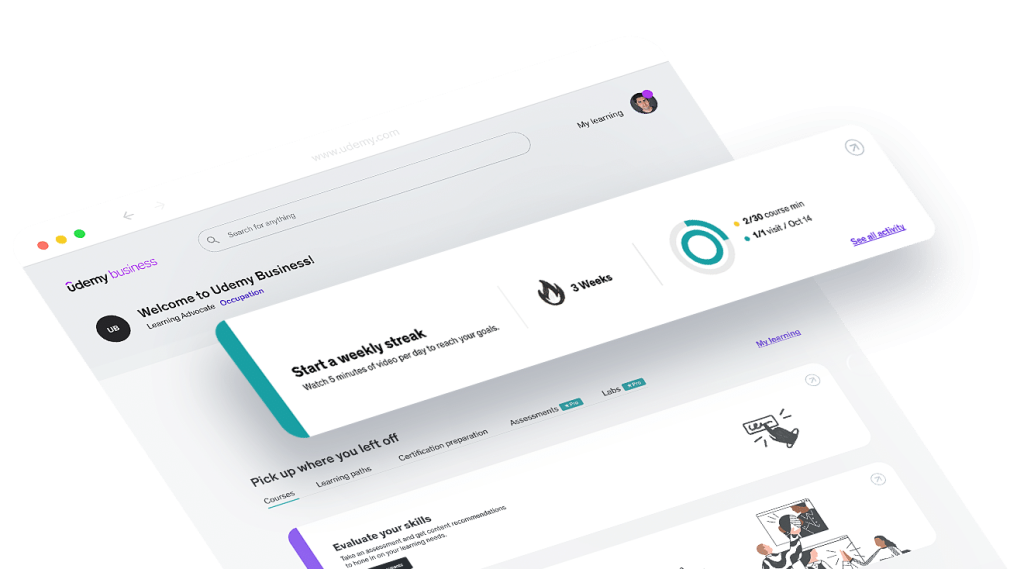
8. Whizlabs
- G2 Rating: 4.8 out of 5 stars
- Starting Price: $199.00
- Best For: IT Professionals
Whizlabs specializes in cloud and DevOps training with strong hands-on labs. The platform needs more frequent course updates but delivers solid technical training. It’s perfect for IT teams focused on cloud certifications and practical skills.
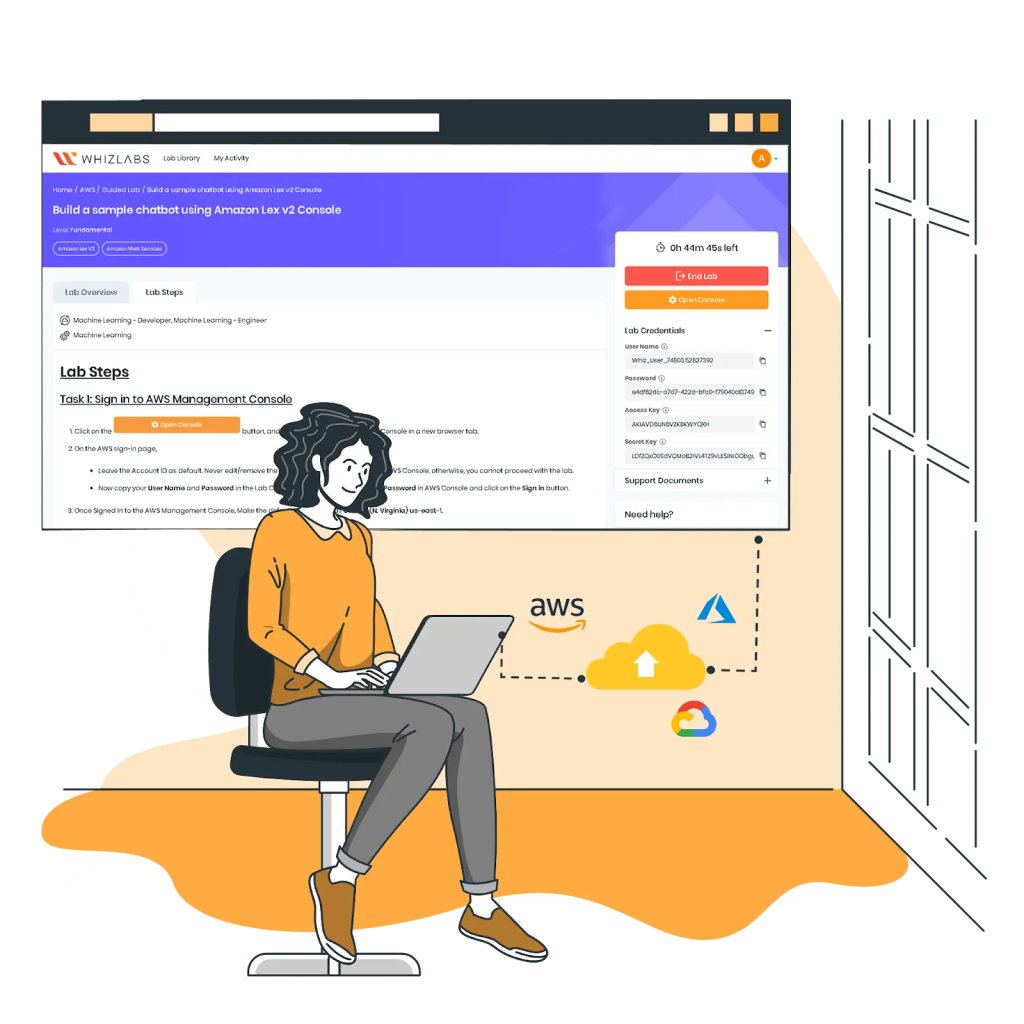
9. Pluralsight Skills
- G2 Rating: 4.6 out of 5 stars
- Starting Price: $299.00 per user/year
- Best For: IT and Software Developers
Pluralsight focuses on building technical skills with an enterprise mindset. Their interactive assessments help teams measure progress effectively. This option is ideal for organizations that need comprehensive tech training.

10. DataCamp
- G2 Rating: 4.6 out of 5 stars
- Pricing: Free
- Best For: Data Analysts
DataCamp specializes in data and AI courses with strong collaborative features. While customization options are limited, the user-friendly platform works well for teams building data skills. It’s perfect for organizations investing in data literacy.
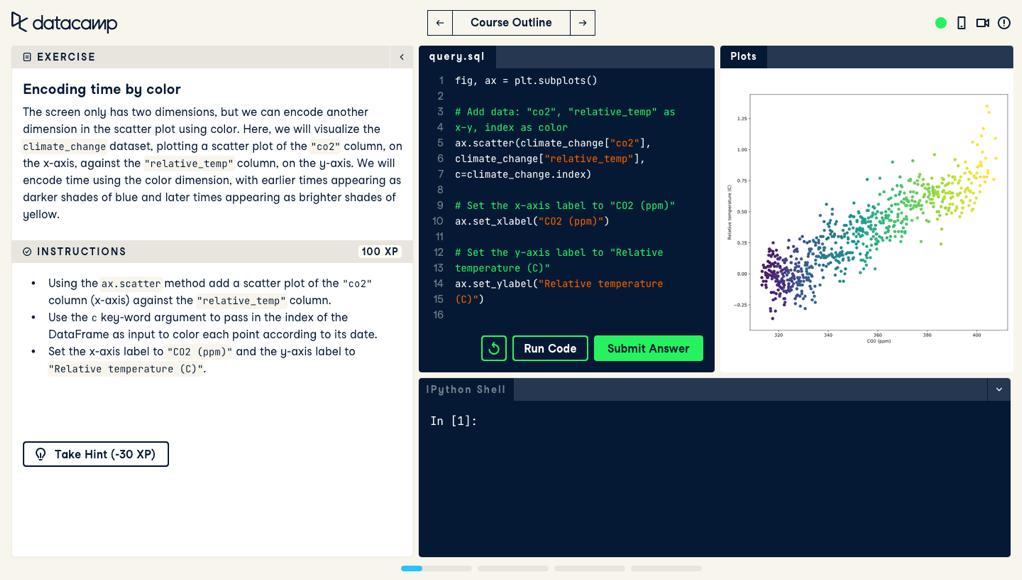
11. Speexx
- G2 Rating: 4.6 out of 5 stars
- Pricing: Contact for pricing details
- Best For: Global Teams
Speexx specializes in language learning and communication training for international teams. The platform combines AI-driven learning with human coaching to improve workplace communication. Teams appreciate how it handles multiple languages and cultural training effectively.

How to Choose an Online Course Provider
Selecting the right learning platform shapes your team’s success. It’s about finding a solution that aligns with your goals, supports your team’s learning styles, and delivers measurable outcomes. Here’s what to consider before making your choice.Selecting the right learning platform shapes your team’s success. It’s about finding a solution that aligns with your goals, supports your team’s learning styles, and delivers measurable outcomes. Here’s what to consider before making your choice.
1. Course quality and reputation
Not all e-learning platforms are created equal. A provider might boast sleek marketing, but that doesn’t always translate to quality. Look for current reviews from real users, industry recognition., and evidence of expertise in specific areas: technical skills, leadership development, or specialized knowledge. The best providers consistently update their courses to keep content fresh and relevant.
Pro Tip: Look at platforms that offer free trials or sample content. This allows you to gauge the depth, accuracy, and engagement level of their courses before committing.
2. Learning goals and outcomes
Start with your organization’s specific needs. Are you upskilling your IT team in emerging technologies? Training new managers in leadership skills? Or helping your marketing team master advanced analytics tools? Different providers specialize in different areas, so it’s essential to match your goals with their strengths.
Pro Tip: Clearly define your learning objectives before shortlisting platforms. Look for providers that align with your industry and offer measurable learning outcomes, like certifications or practical assignments.
3. Budget and value
While price is important, it’s the overall value that counts. Some free e-learning platforms excel in focused areas, while premium options may justify higher costs with industry-recognized certifications, comprehensive training paths, or expert instructors. When evaluating cost, factor in metrics like course completion rates, user satisfaction, and real-world skill application.
Pro Tip: Don’t just compare upfront costs—consider the long-term ROI. Tools that lead to higher productivity, employee retention, or skill improvements often pay for themselves.
4. Content delivery and format
Every team has unique learning preferences. Some employees thrive with hands-on practice labs, while others prefer engaging video lessons or interactive quizzes. The best training delivery methods cater to diverse learning styles and provide flexibility. Look for platforms that offer mobile learning, self-paced modules, and integration with day-to-day workflows.
Pro Tip: Choose a provider that offers a mix of formats. This ensures employees can access content in a way that fits their schedule and learning habits, boosting engagement and retention.
5. Integration and management
Seamless integration with your existing tools is a must. Platforms that sync with your LMS, enable progress tracking, and offer robust reporting simplify management. Also, consider administrative features that let you assign courses, monitor usage, and generate insights for leadership.
Pro Tip: Ask about API compatibility or plug-and-play integrations during your evaluation. This can save countless hours on implementation and ensure smoother operations.
6. Support and resources
Strong customer support can make or break the adoption of an online course provider. Look for platforms that offer dedicated onboarding assistance, reliable technical support, and a wealth of learning resources to help your team succeed. For enterprise-scale training, this is even more critical.
Pro Tip: Test their support before committing. Reach out with questions during your evaluation process to see how responsive and helpful their team is.

Training Clicks Better With Whatfix
Whatfix empowers L&D leaders to create content that works for learners across any organization. This application sits on top of your existing workplace software interface to provide in-app guidance and support to employees as they learn new software or processes within that software.
The Whatfix digital adoption platform (DAP) includes easy-to-use, no-code design tools that help L&D teams create timely learning content and self-serve knowledge bases that learners can engage with in their moment of need. With Whatfix Mirror, your team can even design simulated software environments employees can use to practice what they’ve learned without affecting live company data.
Whatfix helps L&D teams provide personalized and useful information to employees on demand, satisfying their learning needs and preferences around the clock.
All employees are unique and require personalized learning paths to reach their full potential in the workplace. While curating individual learning activities for every employee might seem difficult, modern digital solutions like Whatfix can ease your team through the process.
Here’s how Whatfix features can improve your online course provider experience:
- Whatfix DAP can help you create and deliver timely, contextual support as employees learn new software tasks,
- Use Whatfix Mirror to provide space for creative, risk-free experimentation and
- Whatfix Analytics allow you to monitor and improve learning programs as your organization and its employees grow.
Ready to improve your L&D strategy? Help your employees by adapting your business’ learning content to different employee learning styles with Whatfix. Contact us for a free demo today!







